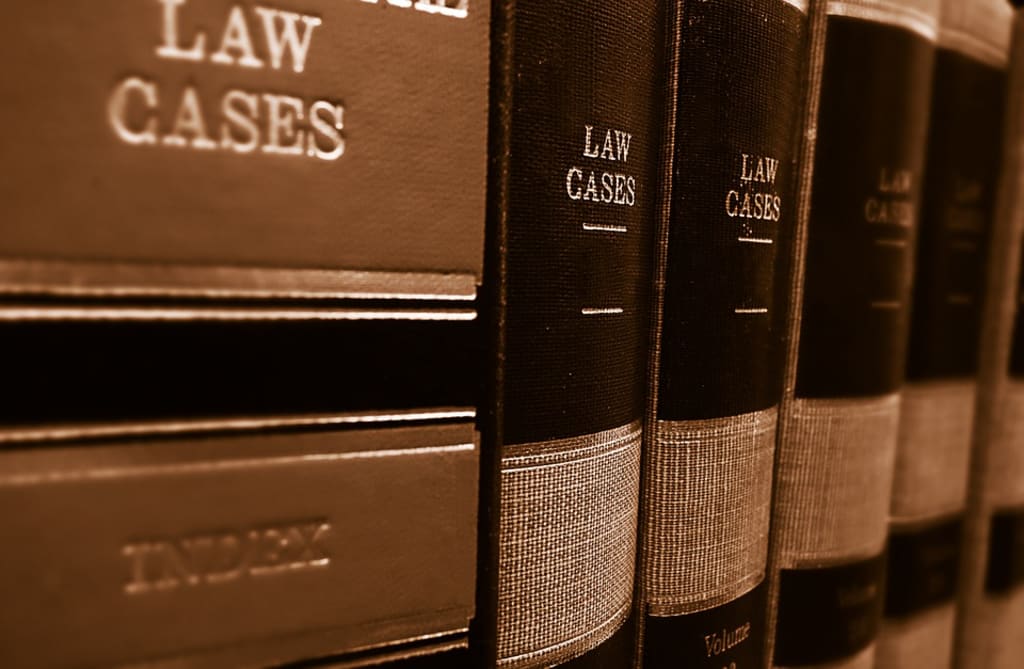Real Lives, Digital Evidence
Another example of the thin boundary between our online and everyday lives.

TRIGGER WARNING: In this article I discuss evidence that has been submitted and omitted from recent rape trials in the UK.
Last week, it was announced that all rape and sexual assault cases in England & Wales are to be reviewed, following the collapse of four trials in the last two months (is this a normal figure? I don’t know. It sounds a lot). These trials are said to have collapsed because the police failed to disclose evidence that was relevant to the defence team, in particular digital evidence from the accusers online and social media accounts. This raises several important issues, as well as highlighting the problems our justice system has with securing a conviction in such cases anyway.
A tiny proportion of all rapes actually end up before a judge, for various reasons ranging from difficulty in gathering evidence, to victims’ fear of not being believed (and I don’t blame them – our culture is full of attitudes straight out of Donald Trump’s locker room). It’s not like we need any more impediments to justice.
In the light of the problems we have in bringing rapists to justice, changes in the role of the police have been implemented. These include an updated attitude toward victims, specialist training, and improved gathering of evidence. It would appear that targeting the police to alter their role in the process is a sensible move. But in the case of the undisclosed evidence, they have dropped the ball, from a great height. As a result all ongoing rape and sexual assault cases are being reviewed, although there are no plans to go over any prosecuted cases—but this may open up grounds for appeal. It seems that undisclosed digital evidence has been particularly relevant to those collapsed cases, and presumably this review has been ordered because it’s likely to affect other sexual offence trials specifically.
So far, I’m on board with this. The police have messed up, and it’s important that it’s put right, and we continue to uphold justice. But I’m concerned about some of the things that have been reported in the press. Some of the justifications given, for pieces of undisclosed evidence being relevant, seem to reinforce rape myths that we were supposed to have worked to eliminate from the courtroom in recent years.
The case of Liam Allan relates to social media history that shows he and the complainant had a sexual relationship in the past, and that she indulged in rape fantasies. It sounds suspicious on the face of it, but thinking logically about this, one thing does not follow the other. If they had a relationship previously, that says nothing about the time the trial relates to. And whatever one may think of another’s sexual fantasies, the only thing that really matters is “was there consent?”. News reports say that it casts doubt on the accusation, but should it?
A case involving Oliver Mears was dropped after a diary was discovered that would have worked in his favour. It seems that the case was rather precarious anyway, and this piece of undisclosed evidence was enough to cast doubt upon those allegations. There are no reports of what was actually in the diary.
The trial of Samson Makele was dropped after photos were discovered on his phone of him and his accuser cuddling in bed. It is said to be from the same day that the rape is alleged to have occurred, which is, well, problematic (but not conclusive). Apparently in this case, like the others, police did not find this evidence in order to hand it over to the defense. But given the number of cases that are now set to be reviewed, it’s looking like a weak excuse. An excuse that has been challenged by Liam Allen’s lawyer:
“I would call this review disingenuous. I’m aware, having dealt with more serious cases, that the police and CPS are all too willing to serve data evidence which assist their case."
Whether information was missed or withheld, this is a big problem. The three cases mentioned here seem to have been tipped in the favour of the defendant by a key piece of missing evidence. It’s difficult anyway to gather evidence in rape cases, so the chances are this will be detrimental to a number of prosecutions.
And while the evidence cited in these three cases might not seem conclusive in itself, the way it relates to digital evidence and social media is a problem for all of us, potentially. The legal system is going to have to catch up pretty darn quickly, and ensure that it knows where it should be looking, and what for. Liam Allen said he felt that the police had cherry-picked some messages and ignored others to support their case; if this is true it serves as a warning to other officers—if you choose not to disclose something, you will get found out.
But what if you are an officer combing through months or years of social media history and you need to determine what’s relevant and what’s not? There is scope for misinterpretation and error, and fatigue from the sheer volume of data created by, and for, us. Given the ubiquity of social media, will it end up with the CPS downloading a defendant’s digital life and deciding if it’s incriminating enough to bring a case?
And what about the implications for every single one of us? What if we were to get involved in legal trouble? Would you want the police to see every aspect of your social media activity, including private messages? Is there anything you’ve written or uploaded that could be interpreted as proof of guilt or innocence? What about anything you might be ashamed of? 27-year-old you may cringe at what 17-year-old you wrote on 4Chan, and knowing what I was like at 17, some of it could look pretty bad to an outsider.
At present, it is only rape and sexual assault cases being reviewed – it may well be likely that digital communications were present in many of these cases – because most victims knew their assailant prior to the event. But it will almost certainly factor into other crimes too. It might be that it’s easier just to focus on sex crimes, or that the present media attention has driven the examination of this category.
But we need to be mindful that this is a very gendered problem, with women’s safety and dignity up against men’s comfort and reputation. The last thing we need is another barrier in the way of justice for women. Of course, social media activity could prove guilt as well as casting doubt on any allegations.
Following on from the fact that most rapes and sexual assaults occur between people who already know each other, we can return to a fact even more basic than that they might have been friends on Facebook. If they previously had sexual contact, it does not mean that consent is given forever onwards and at whatever time one partner wants it. The use of technology to solve crime is a progressive step; it would be a shame to hinder that with outdated thinking.
Social media evidence was also not disclosed in a sex trafficking case— again, the defendant claimed that pictures, messages, etc from her phone could be used to exonerate her—and this was not passed to the defense team.
She had spent 13 months in custody awaiting trial. We know very little about what evidence could have cleared her, although the BBC reports that it is to do with the date of the accuser’s pregnancy and discussions over the father’s identity. Again, that doesn’t really tell us much. Is that actually relevant? Perhaps it is. We are sure to find out more about this and other cases over the coming weeks and months. But right now, it looks like utter chaos for the justice system, and a worrying time for victims. More information and guidance from government and the CPS is urgently needed.
In all of these cases, we don’t know the entire story. We don’t know what was submitted to the court, we don’t know whether the omissions amounted to much. But the type of evidence being brought up is the type of thing any of us might have on our profiles, and could be used to argue a great many narratives. Even worse, if these disclosures are used to undermine victims. This still happens in rape cases, even though it’s forbidden. Now we may have to worry about communications history being used to discredit the victims of sex crimes, as well as details of their sexual history.
Rape cases are incredibly difficult to prosecute, and this needs to be remedied by gathering evidence better. If the police have messed up (which they have in the cases reported so far), that needs to be addressed, but how can they know everything? We’re basically asking them to hand over every single bit of information from everywhere (there is a lot of noise in with that signal), and things will get missed as they may not have been deemed relevant.
This could have consequences for every conviction. We all have smartphones, so virtually every case could require additional scrutiny. If we’re looking to convict “beyond all reasonable doubt”, the case needs to be strong. Regardless of what the digital evidence actually says, it’s another complicating factor that can introduce further doubt. Things just got a lot more complicated, and if I was a defense lawyer I would be rubbing my hands together with glee right now.
Since the dawn of the internet age, we have been rather complacent, and we’re only discovering the implications of this new technology as we go along. We, and our institutions, need to be sure that we are up to speed with developments in technology and understand their risks as well as their rewards.
Cybercrime wasn’t even a thing 30 years ago, and yet now it’s a huge chunk of the police’s work. It shouldn't be a huge stretch of the imagination to realise that cyber-evidence can reflect events in the real world. If we don’t move with the times, the criminals will outrun us, and we won’t understand how or why. And that won’t help us bring anyone to justice.
About the Creator
Katy Preen
Research scientist, author & artist based in Manchester, UK. Strident feminist, SJW, proudly working-class.






Comments
There are no comments for this story
Be the first to respond and start the conversation.